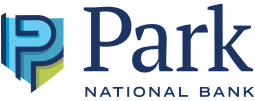What is a 401(k) rollover and how does it impact my financial future?

A 401(k) rollover is the process of transferring funds from one retirement account to another without incurring any tax consequences. Typically, this occurs when an individual leaves a job and transitions to a new employer or retires, prompting them to move their retirement savings from their former employer’s 401(k) plan to an Individual Retirement Account (IRA) or a new employer’s retirement plan.
Understanding the types of 401(k) rollovers
- Direct rollover: This is the simplest and most common type of rollover. In a direct rollover, the funds are transferred directly from your previous employer’s 401(k) plan to your chosen IRA or your new employer’s retirement plan. By choosing this method, you avoid any tax withholding and penalties that might arise from receiving the funds directly.
- Indirect rollover: In an indirect rollover, the funds from your previous 401(k) plan are distributed directly to you. However, to avoid immediate taxation and penalties, you must deposit the funds into the new retirement account within 60 days. Keep in mind that with an indirect rollover, 20% of the distribution may be withheld for taxes, which you will need to make up with your own funds during the rollover process.
What does a 401(k) rollover mean for me?
- Preserve tax-advantaged growth: One of the significant advantages of a 401(k) rollover to an IRA is that it allows you to maintain the tax-advantaged status of your retirement savings. In an IRA, your funds continue to grow tax-deferred until withdrawal, allowing your investments to compound more efficiently over time.
- More investment options and control: Moving your 401(k) funds to an IRA opens up a broader range of investment options. Unlike some employer-sponsored plans, IRAs offer a plethora of investment choices, including stocks, bonds, mutual funds, exchange-traded funds (ETFs), and more. This greater flexibility enables you to tailor your investment strategy to align with your risk tolerance and financial goals.
- Consolidation and simplification: If you’ve had multiple jobs over the years and accumulated retirement accounts with different employers, a 401(k) rollover can help you consolidate these accounts into one IRA. This streamlines your retirement planning, making it easier to manage and monitor your investments.
- Avoiding early withdrawal penalties: When you leave a job and decide not to perform a 401(k) rollover, you might be tempted to cash out the funds. However, this can lead to significant tax consequences. In addition to ordinary income taxes, if you’re under 59½ years old, you may face an additional 10% early withdrawal penalty. Rollover options allow you to avoid these financial setbacks.
- Estate planning benefits: An IRA can offer more favorable estate planning options than a 401(k). For example, you can designate beneficiaries with more flexibility, potentially extending the tax-deferred growth and ensuring a smoother transfer of wealth to your heirs.
Please know that should you choose to withdraw funds and take distributions, these will come with tax withholdings or will create a taxable event. When setting up a distribution plan, it is important to remember that you must pay income taxes on the distributions.
Considerations before initiating a 401(k) rollover
Before proceeding with a 401(k) rollover, consider the following:
- Assess your financial goals: Review your retirement goals and assess whether an IRA or a new employer’s plan aligns better with your objectives and risk tolerance.
- Understand fees and expenses: Compare the fees and expenses associated with your current 401(k) plan and the potential new IRA or employer-sponsored plan.
- Seek professional guidance: Retirement planning can be complex, and seeking advice from a qualified financial advisor can help you make well-informed decisions tailored to your individual circumstances.
A 401(k) rollover is a valuable tool that can empower you to take control of your retirement savings and chart a more flexible and personalized financial future. Whether you opt for a direct rollover to an IRA or transfer your funds to a new employer’s plan, carefully weigh the implications and consult with a local Park financial professional to ensure that your 401(k) rollover aligns with your long-term financial objectives. By making informed choices, you can set the stage for a secure and fulfilling retirement.


